At peak, the F-35 will support 25,000 jobs in the UK over the next few decades and pump £1bn a year into the economy.
Marillyn A. Hewson, President and Chief Executive Officer of Lockheed Martin said:
“It is going to support 25,000 jobs in the UK.”
Cliff Robson, Senior Vice-President for the F-35 Lightning II programme at BAE Systems, said in an interview, referring to the estimated British 25,000 jobs either directly created or supported in the F-35 supply chain.
“It’s cheap when you look at what that investment is returning to the UK.”
When the jet reaches peak production, the programme will be worth some £1 billion to UK industry alone, according to research by KPMG the accounting firm. An estimated 25,000 UK jobs will be sustained across more than 500 companies in the supply chain.
The F-35 features a significant amount of British developed components, in addition to 15% of every jet sold globally being built in Britain.
As the only Level 1 partner, the United Kingdom has garnered tremendous economic benefits from the F-35. British industry will build 15% of each of the more than 3,000 planned F-35s, in addition to a large volume of British developed aircraft systems including the electronic warfare suite.
The programme at peak will generate significant export revenue and GDP growth. The programme is projected to create and support more than 24,000 jobs across every region of the United Kingdom.
Hundreds of British software engineers with BAE have played a leading role in creating software for the F-35 aircraft that will be operational with the US Air Force later this year.
The software team at the BAE site in Samlesbury, Lancashire, has worked alongside Lockheed Martin, the prime contractor on the F-35 programme, to deliver the latest update known as ‘Block 3i’. There are more than eight million lines of code required for full operational capability. Block 3i equips the aircraft with 89% of the software code required.
John Brindle, principal engineer for F-35 Lightning II Development, said:
“Beginning with Jaguar, BAE Systems has a long history and world-class expertise in developing software for aircraft systems. We have made a significant contribution to 3i, including producing software for the fuel management system, on-board vehicle systems, structural health management and elements of the navigation and cockpit display system.”
According to Lockheed Martin:
“The fingerprints of British ingenuity can be found on dozens of the aircrafts key components. BAE Systems, GE Aviation, Martin-Baker, SELEX, Cobham, Ultra Electronics, UTC Actuation Systems and Rolls-Royce are just a few of the more than 100 U.K.-based suppliers for the program.”
They continue:
“The United Kingdom has played integral role on the Joint Strike Fighter since the program’s earliest days. Even before a final aircraft concept was chosen, British engineers and test pilots were making their mark on what would become a revolutionary capability. Under the desert sky at Edwards Air Force Base, Calif., British test pilot left onlookers awestruck as he took the X-35B prototype out for its first flight on June 23, 2001.
A mere four months later, after witnessing the aircraft’s impressive performance, U.S. and U.K. defense officials announced Lockheed Martin’s concept would go on to become the Joint Strike Fighter. In the years since, the F-35 has continued to evolve. It’s advanced stealth, sensor fusion, exceptional maneuverability, unmatched interoperability, and intelligence, surveillance, target acquisition and reconnaissance capabilities will provide the UK with a tactical airpower advantage for decades to come.”
UK industry is playing a valuable role in the manufacture of Lockheed Martin’s F-35 Lightning II multi-role fighter jet, an industry seminar at the Royal United Services Institute in London was told.
Some 15% of EVERY jet, with production set to reach nearly 4,000 aircraft, will be built in the UK. Leading British suppliers displayed their F-35 technology as part of the event, which attracted speakers including Philip Dunne, Minister for Defence Equipment, Support and Technology, Air, Air Chief Marshall Steve Hillier, Deputy Chief of the Defence Staff (Capability), and speakers from industry programme partners such as BAE Systems and GE Aviation.



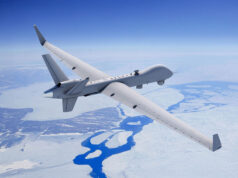

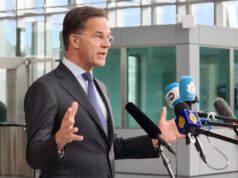

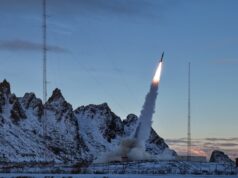


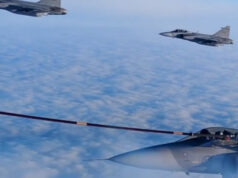
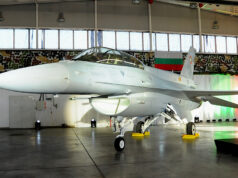


This is like being in at the beginning of the F16 programme, it really is a huge plus for British aerospace industry.